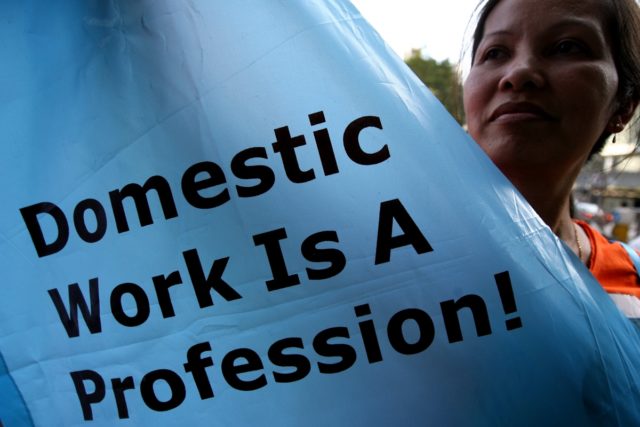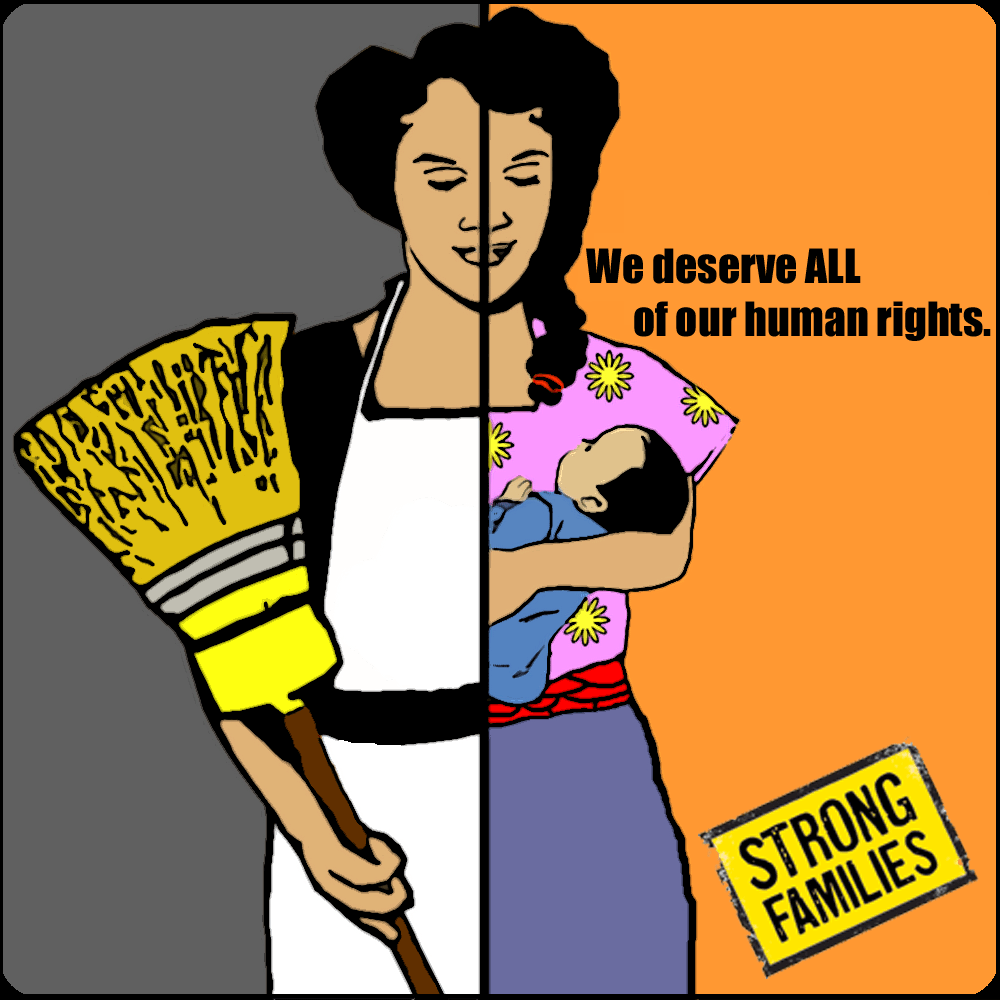Imagine a hot summer morning, when you don’t want to get out of your AC room and do your daily chores. Then you hear your apartment bell being rung.
And that gives you comfort, a comfort that you don’t have to wash your clothes, do dishes or cook for yourself because your domestic help has come and she is not taking a day off.
Now, you can have some more time to relax in your AC room, where you’ll get your morning coffee, before you leave for work.
But there is a whole side to the domestic worker sector that many of us ‘privileged people’ seem to be ignoring or are completely unaware of.
Do we really need domestic workers, if their job is assumed to be so simple?
You’ll have more to worry in future if this domestic help of yours continues to be treated like she is. Currently, domestic workers perform a job that is not respected and is thought of as something that a woman should know how to do.
However, if her job is so simple, why do you complain about her taking a day-off?
There is a need of domestic worker in each house. Whether it is nuclear family of 4, a joint family, a bachelor living alone or with roommates, no matter the gender, living situation or anything, the need for a domestic worker is seen everywhere in India. And while it is a rising workforce it’s not exactly a desirable one.
Therefore, since we cannot do away with domestic workers because of their huge demand, what we can do is make their profession more respectable by enhancing their skills.
They make it possible for working people to do their jobs without worrying about food or other household work. They help a housewife to concentrate more on her kids and other stuff rather than worrying about mopping the floor or washing clothes.
Current status of laws governing Domestic Workers
Convention 189, (Decent Work for Domestic Worker) made by the International Labour Organization (ILO) sets a minimum social floor for domestic workers. It is the first international effort to recognize the invisible work force of domestic workers.
Unfortunately, India fails to apply it properly. India has laws regarding construction workers and beedi workers but it does not recognize domestic workers properly, which contains a large force of the unorganized sector.

There are acts that target the domestic workers but they fail to uplift them. Domestic Workers Welfare Board Act is essentially made for domestic workers but it takes the burden off from domestic worker’s employer regarding their social welfare, and instead puts the onus to deliver on the state, whose record is patchy at best.
So, basically, if you have a domestic help, you don’t need to worry about her welfare or proper treatment inside your house.
What can be done?
Advancement of technology and a desire for perfection in every household demands growth of skilled domestic workers. This way we can recognise the market demand and turn it into opportunities for underprivileged.
Some examples of non-government organisations trying to improve the condition of Domestic Workers
1. Partners in Prosperity:
A Delhi based NGO that has been providing vocational training to domestic workers, they are creating revenue through training and placements.
Their focus is skill enhancement, job placement, personal counselling and building institutional structures which promote greater social equality. Partners in Prosperity has done an impressive job in the area of skill enhancement of domestic workers which has increased their wages.
2. Self-help groups:
In Hyderabad, Telangana these groups have become an instrument in uniting domestic workers. In past, they have made domestic workers aware of various issues regarding their work and payment agreements.
3. LabourNet
A social enterprise that enables sustainable livelihoods for the disadvantaged sections, it works to develop assessment and training tools.
These are specifically designed to identify the gaps in skills of the domestic workers and are aimed at providing training for enhancing the quality of skills of domestic workers.

What these organizations are doing will help us to come one step close to the quote “there is no job too big or too small” in true sense.
What is needed to be done by the government?
The unorganised sector constitutes almost 90% of the workforce and domestic workers constitute 20% of the sector. This 20% does not get included in the GDP as it is hardly a part of any formal records.
We need more solid and uplifting laws to be made by the Indian government for social welfare of domestic workers. A law which can, also, keep track of their numbers and wages.
Hence, having formal contracts with the employer will ensure social welfare and fair wages for domestic workers.
Image credits: Google Images
Sources: epw.in, prsindia.org, wiego.org
Find the blogger: @darshna_kumar
Other recommendation:





























